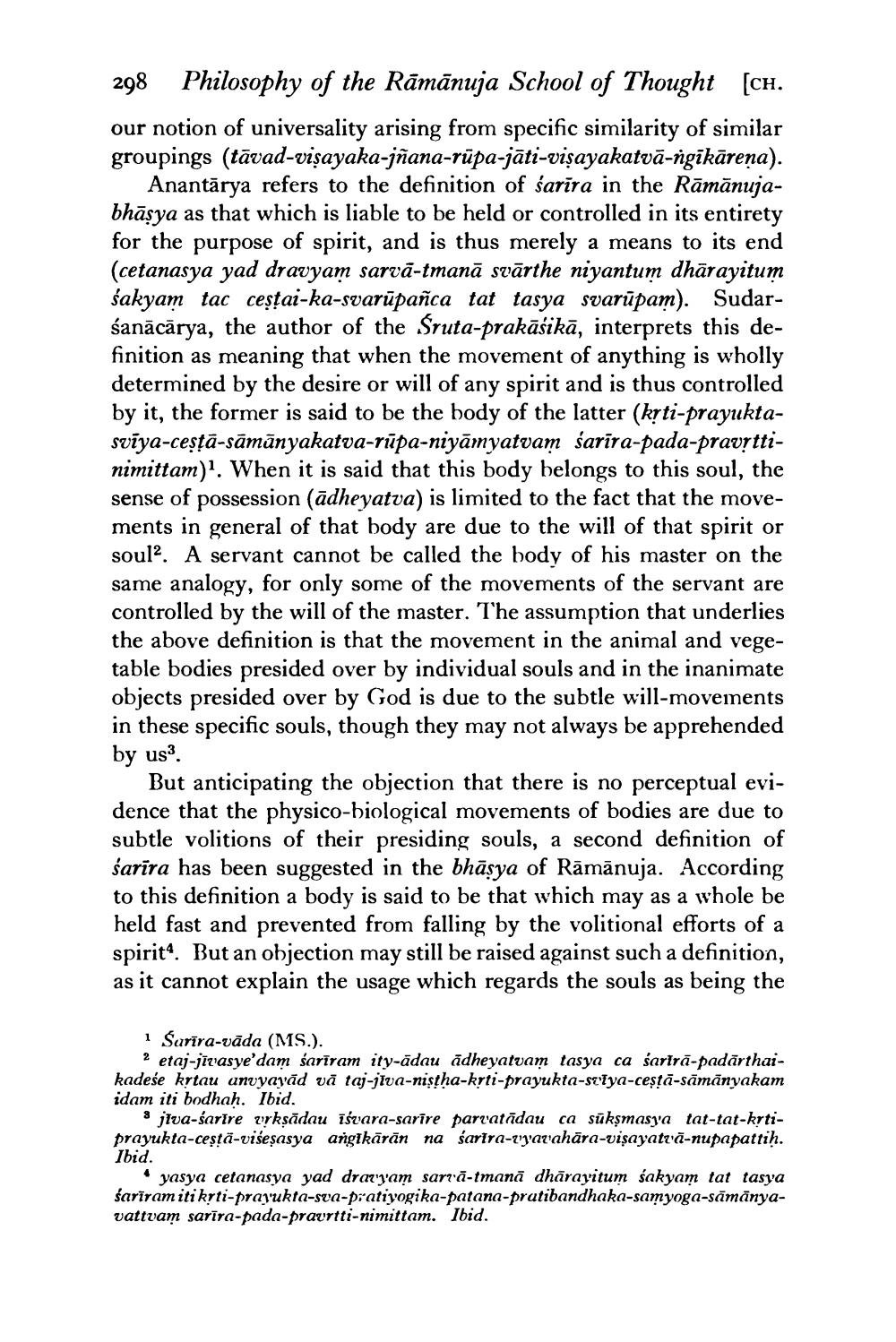________________
298 Philosophy of the Rāmānuja School of Thought (CH. our notion of universality arising from specific similarity of similar groupings (tāvad-visayaka-jñana-rūpa-jāti-visayakatvā-ngīkāreņa).
Anantārya refers to the definition of sarira in the Rāmānujabhāsya as that which is liable to be held or controlled in its entirety for the purpose of spirit, and is thus merely a means to its end (cetanasya yad dravyam sarvā-tmanā svārthe niyantum dhārayitum śakyam tac cestai-ka-svarūpañca tat tasya svarūpam). Sudarsanācārya, the author of the Sruta-prakāśikā, interprets this definition as meaning that when the movement of anything is wholly determined by the desire or will of any spirit and is thus controlled by it, the former is said to be the body of the latter (krti-prayuktasvīya-cestā-sāmānyakatva-rupa-niyāmyatvam śarīra-pada-pravrttinimittam)". When it is said that this body belongs to this soul, the sense of possession (ādheyatva) is limited to the fact that the movements in general of that body are due to the will of that spirit or soul?. A servant cannot be called the body of his master on the same analogy, for only some of the movements of the servant are controlled by the will of the master. The assumption that underlies the above definition is that the movement in the animal and vegetable bodies presided over by individual souls and in the inanimate objects presided over by God is due to the subtle will-movements in these specific souls, though they may not always be apprehended by us.
But anticipating the objection that there is no perceptual evidence that the physico-biological movements of bodies are due to subtle volitions of their presiding souls, a second definition of śarīra has been suggested in the bhāsya of Rāmānuja. According to this definition a body is said to be that which may as a whole be held fast and prevented from falling by the volitional efforts of a spirito. But an objection may still be raised against such a definition, as it cannot explain the usage which regards the souls as being the
i śarīra-vāda (MS.).
2 etaj-jīzasye'dam sariram ity-ādau adheyatvam tasya ca sarirā-padārthaikadese krtau anvyavād vā taj-jīva-nistha-krti-prayukta-selya-ceştā-sāmānyakam idam iti bodhah. Ibid.
s jiva-sarire urksādau īśvara-sarire parlatādau ca sūksmasya tat-tat-krtiprayukta-cestā-višeşasya angikārān na sarira-riyavahāra-visayatrā-nupapattih. Ibid.
yasya cetanasya yad drazy'am sarrā-tmanā dhāravitum sakyam tat tasya sariram iti kyti-prayukta-sua-pratiyogika-patana-pratibandhaka-samyoga-sāmānyavattvam sarīra-pada-praurtti-nimittam. Ibid.




